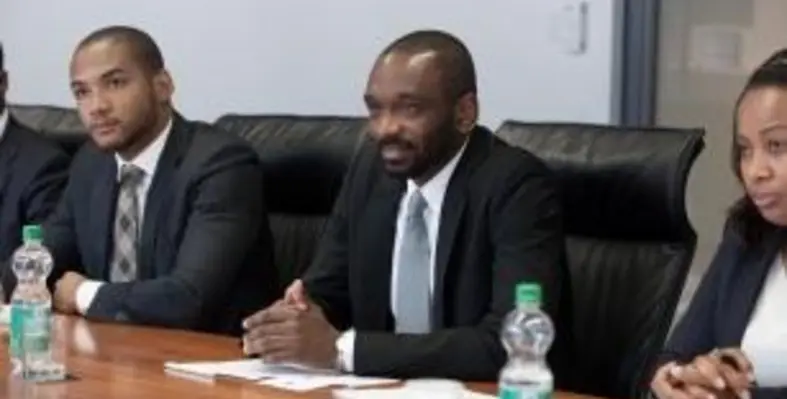The Fundo Soberano de Angola generated profits in 2016 for the first time since its launch in 2012
The head of Angola’s first sovereign wealth fund has told investors to make the most of “Africa’s benchmark” stake into private equity.
José Filomeno dos Santos, chairman of the board of directors for the Fundo Soberano de Angola (FSDEA), said the results of the 2016 audited accounts for the nation’s private equity investment fund point to continuous capital gains.
Santos told African Review: “It’s a good time to invest in the next two years as our assets are accessible, the Angolan Government will be promoting inward investment and speculative prices of assets will be undervalued.
“Our economy is recovering, although not at the same rate as the US and Europe. It is [nevertheless] still recovering at a steady pace. Obviously it’s going to take a while for that recovery to be reflected in terms of our asset prices. On the other hand, that in itself presents a lucrative opportunity.”
According to the FSDEA’s 2016 audited results, the Fund has generated profits since its launch in 2012, with an initial endowment of US$5bn. Last year, the fund recorded a 40 per cent reduction in operational costs compared to 2015.
Santos attributes this result to a prudent investment policy and some positive returns on investments in agriculture and infrastructure sectors. He said that the main gains of the seven private equity investment funds have been recorded in agriculture, (US$110mn), and the infrastructure fund (US$118mn). This offsets the depreciation of US$30mn of the remaining funds in real estate, hotels, timber and healthcare and mining.
Overall, the Fund’s total assets increased to US$4.99bn in 2016 from US$4.75bn in the previous year. Of the total portfolio, 58 per cent has been dedicated to assets in sub-Saharan Africa, with 10 per cent in North America, 12 per cent in Europe and 20 per cent across the rest of the world.
Santos added that assets are predominantly in Angola, including Cabinda’s first deep-water port and large-scale farms. “We recognise that we are a benchmark African sovereign fund in a relatively short period of time that is now well positioned to grow,” he said. “We will achieve a continuous asset appreciation with the private equity funds in infrastructure and farming, expecting the remaining five funds to break even.”
Santos explained that these investments had been made against a tough macroeconomic context, marked by a devaluation of the currency and the volatility of the international price of crude oil that dipped in 2014.
He said: “The context was that most of the people were not investing, so we wanted to develop business in areas that were much more forward-thinking. This was challenging. “One of its biggest characteristics is the fact that our oil industry does not generate a lot of employment as most of its activities are offshore. The impact of the oil industry is not always felt onshore in terms of development and creation of jobs. We would like to see more of an impact on society.”
The Fund allocates 7.5 per cent of its capital to social development on projects that can demonstrate socio-economic benefits such as job and wealth creation. Known as the Social Charter, this arm of the Fund supports the work of NGOs in promoting vocational training, sustainable income generation, access to water and health care services.
Santos said, “Looking back, we started from nowhere with only a hazy strategy but since then, we’ve been defining our focus more and more. Only last week, we signed contracts with 11 NGOs, allowing people to generate income, small farmers, entrepreneurs and those providing health services and access to clean water. We focus on vocational training and work with NGOs that support training for young people and work with companies to create jobs. It’s about sustainable development.”
Santos is confident that the benefits will be make a real and lasting difference to the day-to-day lives of ordinary Angolans. On the other hand, he says the impact on the investor will not be felt for some time. “In agriculture, the first impact will be on the creation of jobs and rolling out supply contracts and equipment. We want to boost small industries as a whole. In agriculture we have productive land of 72,000ha. Working on these large swathes of land demands people, supplies and equipment.” Meanwhile, the FSDEA has been making strides to improve business practices. For example, the fund is the first Angolan institution to adopt the International Financial Reporting Standards (IFRS). Last year’s results are now fully compatible with the use of IFRS on a consolidated basis.
Santos added, “At the end of each accounting period we probably close the books of hundreds of companies. Auditing our accounts is a relatively new approach. The government is our supervisor so we have to present them the truest possible picture.”
However, he admitted that his team has been allowed to cherry pick assets but, ultimately, if these failed, he would only have himself to blame, adding, “It’s been about setting an example – but we still have a long way to go.”












